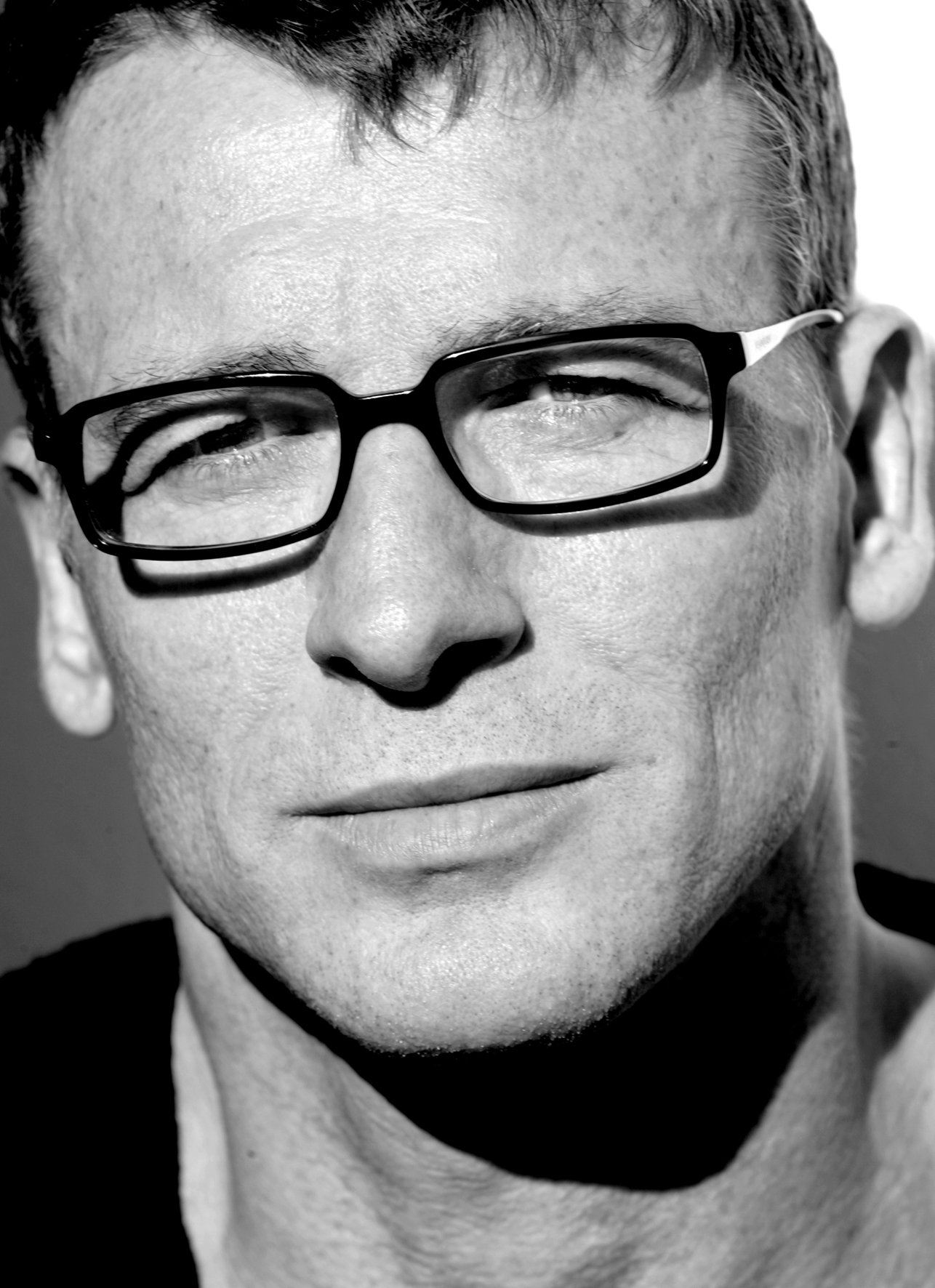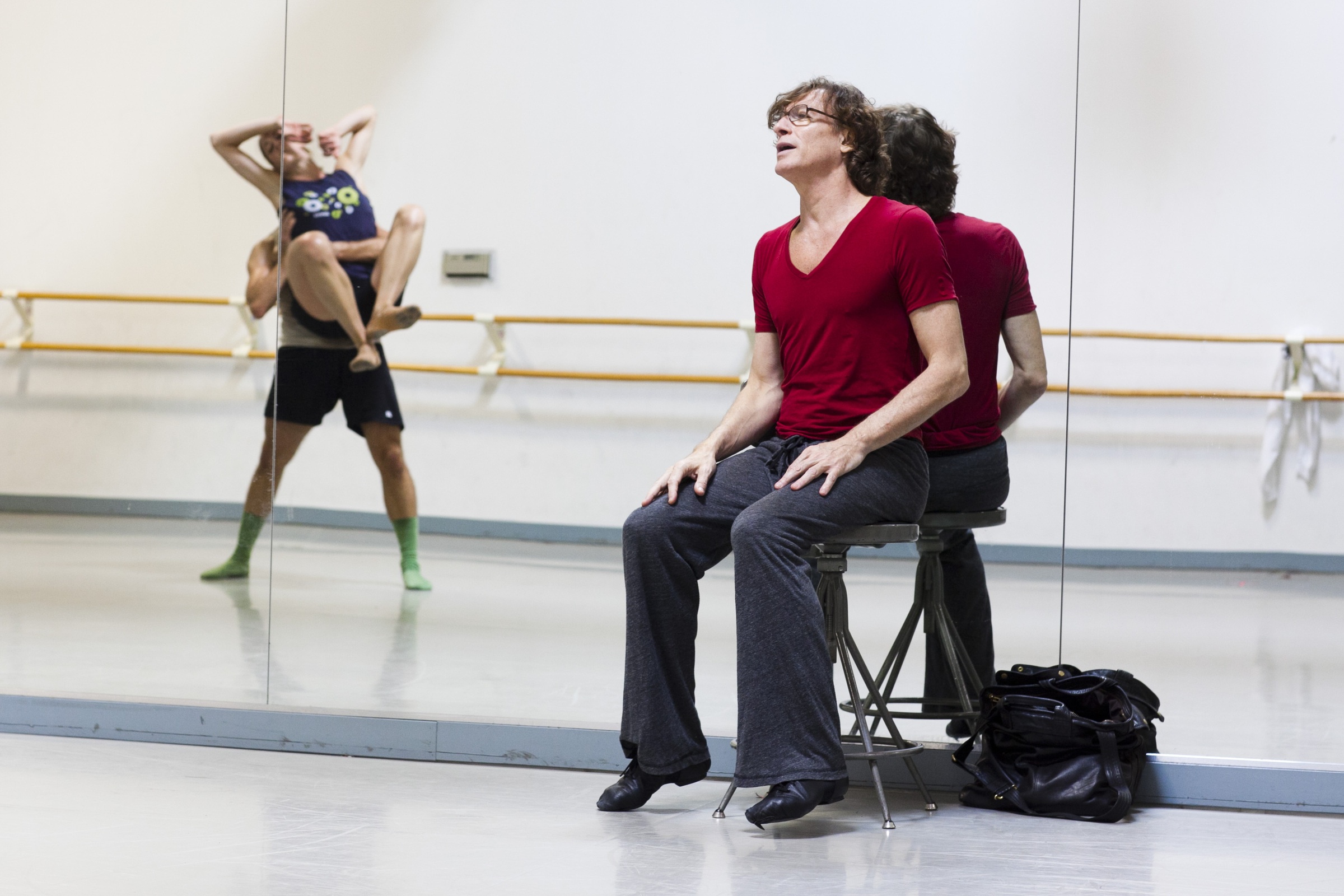His words.
Continuing his illustrious international career as a dancer, choreographer and artistic director, Nacho Duato is taking his talents to Russia. He was recently named the Artistic Director of St. Petersburg’s Mikhailovsky Theater, a post he assumes on January 1, 2011. After 20 years in Spain directing Compañía Nacional de Danza, this will be quite a change. “I’m going to go with just a suitcase and a head full of ideas,” Duato, 53, says while in town setting his piece Arcangelo on the Hubbard Street dancers. “I want to start a new life in St. Petersburg. A new Nacho.”
Duato’s work should be familiar to local audiences, with Arcangelo (choreographed in 2000) being his sixth piece in the HSDC rep. RB was lucky enough to sit in on rehearsal and talk with him about his choreography and his new Russian gig.
RB: Are you excited about your new job? You’re the talk of the dance world right now.
ND: I am very excited. Absolutely. I’m sad…not to leave Spain, but I care about my company. I think change is good when you add something, but when you rest or you kill something, I think it’s bad. In another way, I am happy that after 20 years…we ended up dancing at the Bolshoi, the State Theater, Kennedy Center, London…everywhere. I’m happy now that I left it at that level. Now I can go on with a larger company. I’m not only going to have to direct a company, but also the theater and the ballet. I have an orchestra and a choir, there is a big festival, I have to do galas, I have 130 dancers, 120 performances only in the theater and then we do tours.
RB: Are they strictly a classical ballet company?
ND: Yes, but I will change it into a company that does classical and modern work, like most of the operas. Like ABT or Paris Opera, Munich Opera, Berlin…
RB: Are they up for it?
ND: That’s what I said to the director. He said we want you here. I know this is crazy. You are the only foreigner after Petipa that accepted this position. We are very grateful for you. We are very honored that you come and you decided to work together with us to change the dance in Russia. They are such good dancers. If I’m there every day with them and working hard, correcting, making new ballets for them using their technique, I think slowly we will — I think in six or seven years — we will be a good company.
RB: Is there a contract or is it open?
ND: I have a 5-year contract, but if I stay two years, they want to give me an non-definite, an open contract. If I decide to move or I miss my last company, they’ll bury me next to Petipa (laughing).
RB: Do you speak Russian?
ND: No. I have my dictionary here (in his bag).
RB: Will there be a translator, or how will that work?
ND: I’ve made three ballets over there; you always work with a translator — a dancer that is a translator, as well. I said to my dancers, I’m going to try to learn Russian, but you have to learn English. Because these days, if you want to be part of the dance world and you want to be in the modern community, you have to speak English. Russia is opening little by little, but I feel like they’re behind the rest of Europe. In the mind they have to open themselves, they have to change. I think that’s why they called me. Audiences are fed up with Giselle, they love it and they do it very well in my company, but they’ve seen it so much. They need something else. They are ready. We keep on doing the classics, but do it in a different way. They need to modernize the way they do classics.
RB: So would you do Giselle for one show, then a mixed rep of new works?
ND: What we’ve planned with the General Director (Vladmir Kekhman), we will do three months of classics and the rest contemporary. He really wants to have a stamp of the first contemporary mixed company in Russia. Because we’re in the same city as Kirov and it is classic. We could never compete with the Kirov, so we want to bring something very different and unique there. Also, you have to see how the audience responds. Ballet is something very serious in Russia. You can’t just bring in anybody. You cannot change a step in Giselle, people are going to boo. You have to be very careful. I believe very much to direct a company, and a theatre even more, is to have a dialogue with the audience. At the end, you work for them. They pay to go and see and support you, so you can’t just do whatever you want. It must be a give and take and together – the audience and the dancers and me – must shape this company. I’m very clear about that.
RB: Has there been any backlash?
ND: No. The feeling I had in Spain all of these years…although I had a very good public and respect for many people, at the same time I felt a lot of jealousy and I felt an enormous lack of knowledge of what I was doing, who I was and what the company represented. In a way I felt a bit not loved, not wanted and I think an artist, especially an international ballet, needs support from the government. I don’t want to be in a place where you don’t want me. The last two years I felt very bad. I got all that love back from the Russians right now. They respect so much my work. They give me free artistic hands and they trust me. For me, this is great. I may be a dreamer, but I think it’s going to work with this mixture of different souls and different traditions. I think it’s going to be good.
RB: Tell me about Arcangelo.
ND: I use some of the Concerti Grossi from Corelli. I took all the adagios and andantes…and then at the end, I used an aria from Scarlotti from the opera The First Homicide about Cain and Abel, the first human being that was killed. There is something for us at the opera…very naïve, that we go to a city in the clouds with the angels and heaven and underneath with the fire and devils. I just tried to contemplate that idea, where they had so clear — if you are good, you go to heaven; if you are bad, you go to hell. Everything is about the two extremes: heaven and hell. Heaven is up and hell is down (laughing). The last pas de deux at the end, they are wrapped around a black cloth and lifted up to heaven. It’s a very simple idea, but why I wanted to do this ballet is because I loved the music.
RB: This is your sixth piece in HSDC’s rep. Will you continue to work with them?
ND: I hope so. I like it very much. I like the company. I think they do very well, the work.
RB: Do you think it is easy for them because they’ve worked with you so much before that they’re used to your vocabulary?
ND: But this is very different work from before. I think Glenn was good bringing something totally different from Rassamblement or Gnawa. Those other works are much more earthy, sort of folkloric. This is more lyrical.
RB: A lot of your work, you have very delicate, almost vulnerable arm and hand gestures, but an underlying strength especially with the women. How do you find that balance as a choreographer?
ND: It’s because of the type of dancers I choose to work with me. I like people that have very strong, simple, classical technique, but at the same time they have the courageousness of woman or also of man. I think classical technique is the only one that gives this elegance. I love all these folkloric and ethnic music, so I need people close to the floor, that are able to stomp on the floor and to feel the stomach. That combination is beautiful, because you can play with those extremes.
RB: There is so much NDT influence and European choreographic influence here that it really makes the dancers more exposed — and the audience. Who are some of your influences?
ND: Well, Jirí (Kylián), he’s the key. I worked nine years with him, and I started dancing with him and choreographing with him, and everything with him. It’s been 21 years away from NDT, but it’s normal that they say I come from Kylián, so my work is Kylianesque. I don’t find it so much. I think we are both very musical and elegant in a sort of way. We like simple costumes and simple décor and the choice of music is always important to us, but if you look carefully (or not so carefully) at the work, I think it’s very different. Gnawa…he would have never done Gnawa. Maybe one ballet looks a bit more like Kylián, but the whole layout of my work, I think, is quite different. It has a different weight.
Hubbard Street Dance Chicago’s Fall Series: September 30 – October 3 at the Harris Theater in Millennium Park
For ticket info: hubbardstreetdance.com, 312.850.9744



Fab piece, congratulations! This new path in Duato’s career leaves us just like Alice in Wonderland, crying “curiouser and curiouser”! We can’t wait for the Mikhailovsky to tour London again, with or without Giselle…
Best,
TBB
well done!
Pingback: Happy Belated… | Ruminations by a Rogue Ballerina